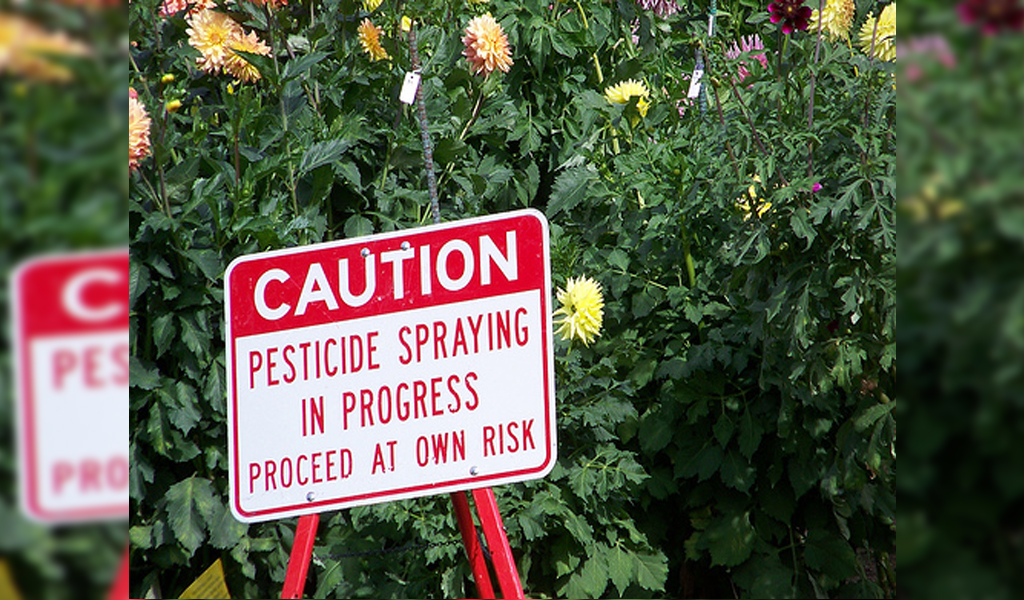You probably think that you’re safe and far from danger when you’re eating a non-organic apple or two, or when working for a couple of hours only in a farm with herbicides being sprayed around you. Think again! Unfortunately, this kind of thinking is already passé with the findings of a new study on low-level exposure to pesticides and your risk of developing Parkinson’s Disease.
A new study from the University of Guelph had come to the conclusion that people who are predisposed to developing Parkinson’s Disease, are more likely to have it when exposed even at low levels to pesticides. These low-level exposure to the pesticides disrupts cells in a way that “mimics” the effects of mutations that are established to cause Parkinson’s disease.
These two commonly used agrochemicals identified in the study are paraquat and maneb. Paraquat is used on crops while they grow and maneb prevents post-harvest spoiling.
“People exposed to these chemicals are at about a 250-percent higher risk of developing Parkinson’s disease than the rest of the population,” said Scott Ryan, a professor in the Department of Molecular and Cellular Biology of the University of Guelph.
Published in the journal Federation of American Societies for Experimental Biology, the Guelph study used stem cells from people with Parkinson’s disease that had a mutation in a gene called synuclein, one that is highly associated with an increased risk of the disease. They also used normal embryonic stem cells in which the risk associated mutation was introduced by gene editing.
“Until now, the link between pesticides and Parkinson’s disease was based primarily on animal studies as well as epidemiological research that demonstrated an increased risk among farmers and others exposed to agricultural chemicals,” said Ryan. “We are one of the first to investigate what is happening inside human cells.”
From the two types of stem cells, Ryan’s research team made dopamine-producing neurons — the specific neurons affected in people with Parkinson’s disease — and exposed them to the two agrochemicals. In subjecting the two cells to agrochemicals, energy-producing mitochondria were prevented from moving to where they were needed inside the cell, depriving the neurons of energy.
The result: neurons from the Parkinson’s patients and those in which the genetic mutation was introduced were damaged at doses “below the EPA’s lowest established dosage level”. Higher doses were needed to impair function in the normal neurons.
“People with a predisposition for Parkinson’s disease are more affected by these low level exposures to agrochemicals, and therefore more likely to develop the disease,” said Ryan. “This is one of the reasons why some people living near agricultural areas are at a higher risk.”
Ryan called for the need for government to reassess current acceptable levels to the two agrochemicals based on their findings. He said that not everyone is equal, therefore safety standards need to be updated to protect those who are susceptible and at risk – and may not even know about it.
Past studies have shown that exposure to pesticides doesn’t just increase a person’s risk of developing Parkinson’s; it can even cause the illness itself in some people. Aside from paraquat and maneb, previous studies have also linked the agrochemical ziram to Parkinson’s.
How to Detect Parkinson’s disease
Unfortunately, the symptoms of Parkinson’s disease develop slowly over time. They may range from tremors, limb rigidity, and balance problems. Aside from the motor-related problems, one can experience non-motor ones like cognitive impairment, sleep disorders, depression, constipation, and a loss of smell.
Although one can have a good quality of life with the right treatment and early diagnosis, current therapies can improve the symptoms but not the progression of the disease. So scientists are working hard to find the biomarkers for the disease.
My recommendation is to eat pesticide-free, organic vegetables and fruits to lessen your risk of developing neurodegenerative diseases caused by pesticide use. Also, having a healthy lifestyle which includes proper nutrition and regular exercise, including mental exercises, are recommended.
Copyright 2022, DoctorFarrah.com


